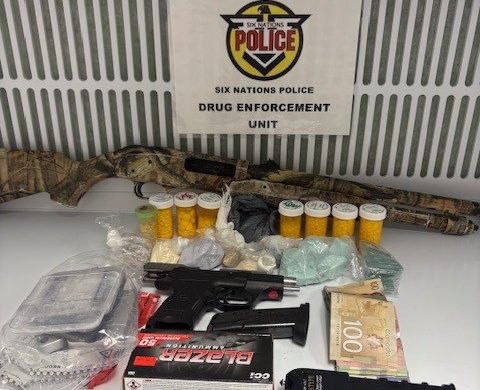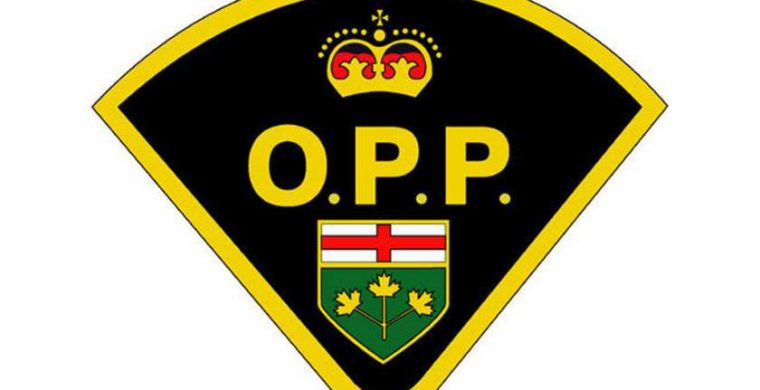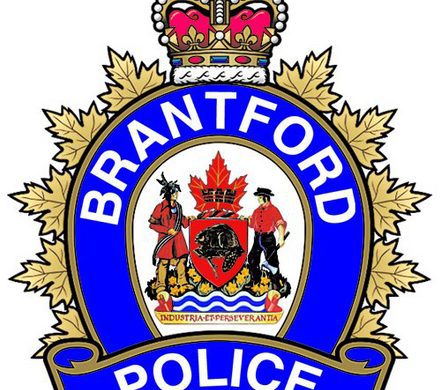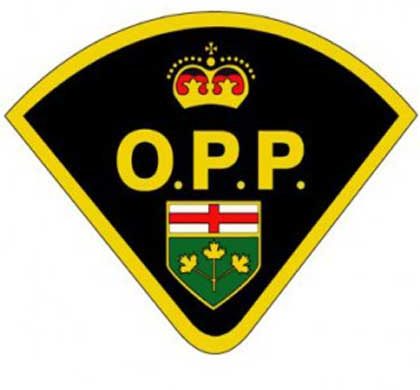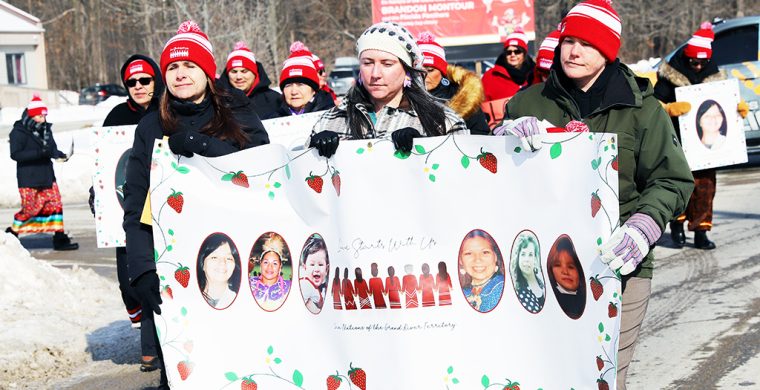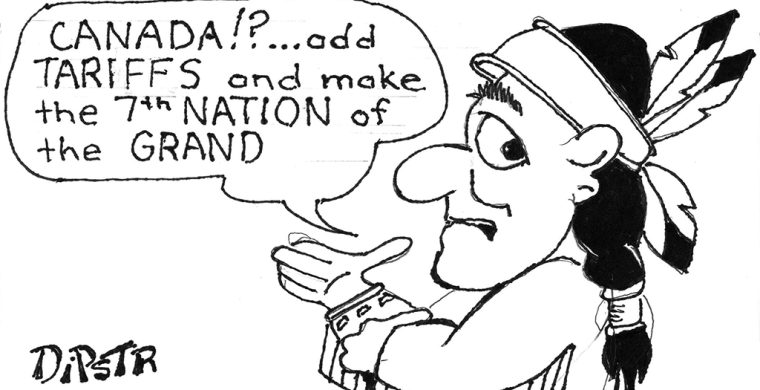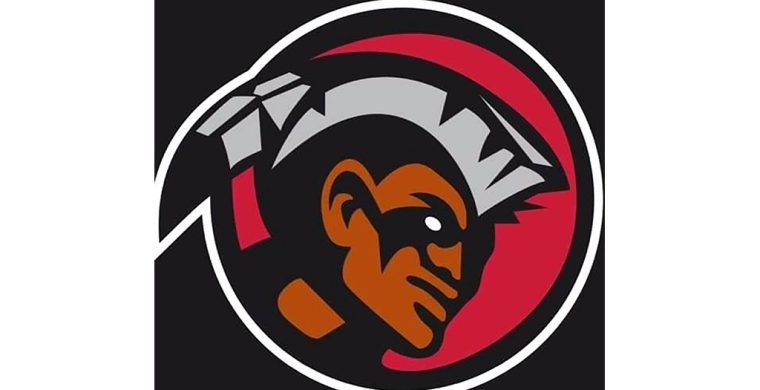Nuu-chah-nulth dancers get ready to ring in the Nisga’a new year at Hoobiyee 2025
By Nora O’Malley, Local Journalism Initiative Reporter Ty-Histanis, BC – Excitement is building for Hoobiyee 2025, a two-day celebration of Indigenous dance and culture set to illuminate Vancouver’s PNE Forum on Friday, Feb. 28 and Saturday, March 1. Pronounced HOO-bee-yay, the event is guided by the emergence of the first crescent moon in late winter and marks the beginning of the Nisga’a new year. The Nisga’a people have lived in the Nass River Valley of British Columbia’s northwest coast since before recorded time. In Vancouver, the Nisga’a Ts’amiks Vancouver Society represents over 2,000 Nisga’a citizens who reside within the Greater Vancouver, Victoria and Vancouver Island regions. Each year, the Nisga’a Ts’amiks Vancouver Society hosts Hoobiyee, extending invitations to dance groups from other Nations to join the festivities. Tla-o-qui-aht First Nation...
Guns, Fentanyl, and Teddy Bear-Shaped Drugs Seized in Six Nations Police Bust
Six Nations Police seized weapons, bulk ammunition, cocaine and fentanyl as part of Project Neo (Six Nations Police Photo) By Joshua Santos Writer SIX NATIONS OF THE GRAND-Four people are facing a series of drug charges after a lengthy Six Nations Police (SNP) drug trafficking investigation, dubbed Project Neo, resulted in 60 charges being laid, the seizure of firearms, fentanyl and other illicit drugs and the arrest of a man suspected of delivering drugs to Six Nations in a taxi. The arrests over two days saw two men from Brantford and two others from the Toronto area arrested . Project Neo arrests began on Feb., 13th when SNP arrested a man who arrived at a Chiefswood Road address by taxi. Police investigators searched the vehicle and seized a loaded...
Driver charged following traffic stop in Brantford
BRANTFORD, ONT-A routine traffic stop by Brant County Ontario Provincial Police (OPP) led to several charges against a driver Tuesday (Feb. 18 2025) morning in Brantford. OPP said officers stopped a vehicle on Erie Avenue at about 10:18 a.m and while conducting an investigation and determined the driver was operating the vehicle despite having a suspended license and in breach of a court-ordered condition. A 32-year-old Brantford woman was charged with failure to comply with an undertaking and driving while under suspension. Police say the accused was released from custody and is scheduled to appear in court at a later date. The OPP reminds all motorists of the importance of complying with court-ordered conditions and ensuring they are properly licensed before operating a motor vehicle. Anyone with information related to...
Brantford Police Service issue advisory after multiple reports of scams
BRANTFORD, ONT-The Brantford Police Service (BPS) have issued an advisory to the public after receiving multiple reports of several ongoing scams. BPS are asking the public to share the following information to help spread awareness and notify anyone who may be especially vulnerable. BPS said these fraudsters can be very convincing and often target seniors. BPS would like to remind the public not to provide your PIN access codes or bank cards to anyone. When in doubt, call your bank directly or visit your bank in person to confirm legitimacy. If you feel an activity being requested of you is suspicious, please contact your bank or the Brantford Police Service for guidance. Some of the common scams reported to police involve the following: Gift Card Purchase Reports have been received...
Brant OPP seeking information on Paris break-in after thieves ram truck into store
PARIS, ONT- Brant County Ontario Provincial Police are appealing to the public for information after an early morning break-in at a business on Grand River Street North in Paris over the weekend. Brant OPP responded to the business on Feb. 16 at about 3:53 a.m. after the owner received an alarm notification. Officers arrived to discover shattered glass, bent security bars, and multiple overturned shelves inside the store. Police say merchandise worth more than $3,000 was stolen. Surveillance footage showed that at about 3:36 a.m., a red pickup truck, bearing Ontario licence plate BZ93765, smashed into the building. Further investigation revealed that the vehicle had been reported stolen from Hamilton before the incident. Footage also captured three masked suspects wearing hooded sweaters, gloves, and sunglasses quickly gathering items before fleeing...
Six Nations Valentine’s march remembers Murdered and Missing Indigenous Women
Six Nations hosts Valentines Day Memorial Walk Photos by: Jim C. Powless By Joshua Santos Writer It was a day of love and solidarity as men and women came out in droves to show support during the fourth annual Murdered and Missing Indigenous Women, Girls, Men, Boys and Two-Spirited Valentine’s Day Memorial Walk in Ohsweken. “Love comes in different forms and shapes,” said Danielle Williams, intake at Ganohkwasra Family Assault Support Services. “It can be with your partner, family, community; love is love and we’re going to support that in any way we can.” Community members from Six Nations, Mississaugas of the Credit First Nation and surrounding areas walked from Ganohkwasra to Veterans’ Park “The hard reality we’re putting out is that a lot of our missing and murdered are...
Six Nations Councillor wants strategic housing plan
Six Nations Councillor Helen Miller is calling again for Six Nations to champion its own Strategic Housing Plan after attending a housing conference in Thunder Bay. Councillor Helen Miller told the February 11 Six Nations Elected Council (SNEC) meeting she had attended the 22nd First Nations Housing Conference it reinforced her belief Six Nations should have a strategic housing plan. Miller said while the conference offered different workshops she attended one that focused on creating a strategic plan for housing. “I thought it was excellent, and I’ve been fighting for this council to do a strategic plan for housing,” she said. At the same time she said she she wouldn’t suggest SNEC attend again because the conference was northern focused. “A lot of the stuff wasn’t relevant to us. It...
Brant Health hosting vaccination clinics amidst measles outbreak
By Joshua Santos Writer A measles outbreak near Six Nations has prompt health officials in outside communities to establish vaccination clinics to stop the spread of the disease. Grand Erie Public Health says there are currently 48 confirmed cases, six adults and 42 children, in the Grand Erie region. The region includes Haldimand County, Norfolk County, Brantford, and Brant County. It is investigating an additional 11 confirmed measle cases in Norfolk County. “Measles is a serious, but preventable illness that can impact people of all ages,” said Shawn Falcao, communications advisor for Grand Erie Public Health. “Our focus remains on preventing the spread of measles with vaccination. Many of our residents work, live, play, and worship in neighbouring communities, which is why GEPH is focusing efforts on preventing further transmission.”...
Delays and denials: Six Nations mother struggles with Jordan’s Principle program
By Joshua Santos Writer Kasey Jamieson expected timely assistance when she applied for funding to Jordan’s Principle . Instead she faced delays, bureaucratic red tape and mounting frustration. She waited nearly an entire year before funds in the form of gift cards were released to help her support her child. “I go nights without eating dinner just so my child can eat,” she told Turtle Island News. “The funds were for her, so why should I take away her funds that are going to put food in her mouth,” she said. Jamieson is on social assistance and applied for Jordan’s Principle to supplement her income. She said a Jordan’s Principle worker told her about the program advising her to apply. The worker told her it would be a fast process but...
Brantford man facing attempted murder charge
BRANTFORD- The Brantford Police Service (BPS) has charged a 37-year-old city man with attempted murder after a woman was treated at a local hospital for a stab wound. Brantford Police said they were dispatched to an English Lane residence Friday, February 14, 2025, at about 12:30 a.m., after receiving a report from a local hospital that a woman was being treated for life threatening stab wounds. Police attended the residence and took the man into custody without incident. The accused and the victim were known to each other. BPS said the incident has been classified as an Intimate Partner Violence (IPV) related homicide and no threat to public safety exists. As a result, a 37-year-old Brantford man has been charged with one count of attempted murder, one count of possession...
Trouble haunts AFN office
Sometimes it’s just prophetic when politicians tell the public…all our troubles are behind us. When Cindy Woodhouse Nepinak became the second women in history to lead the Assembly of First Nations (AFN) she told media, a year ago, she was confident the AFN’s troubles were all behind them. Those troubles by the way were the struggle with former AFN leader RoseAnne Archibald, ousted from her position and who has since faded so far into the background she has become invisible. But it seems troubles continue to haunt the AFN’s corner office. Even the physical office itself came under criticism when former National Chief Archibald moved the AFN into a space that takes up the entire second floor of the Sun Life Financial Centre. An office now occupied by National Chief...
Weekly Cartoon
...
UNDER THE NORTHERN SKY – Where I Come From – Omushkegowuk Aski
By Xavier Kataquapit www.underthenorthernsky.com Attawapiskat First Nation is my home community, and it was where I was born and raised with my family. When I think about where I grew up, I feel like I came from some different country or part of the world that is not part of Canada at all. It was so different to everything I later learned about that was outside my home community. My first language is Inineemoon, or as its known in the English language as ‘Cree’. We never referred to ourselves as ‘Cree’. That was a descriptor that was applied to us by European cultures. We knew ourselves and our people as Ininew, our word for ‘people’ and our language as ‘Inineemoon’, which translates as ‘language of the people’. The language that...
Rivermen to kick off preparations for 2025 season with dryland training
By Sam Laskaris Writer Plenty of behind-the-scenes work has been occurring for the last several months. But the Six Nations Rivermen, the local Senior B men’s lacrosse squad, will officially kick off preparations for the upcoming season next week. The first of four dryland training sessions will be held at the Iroquois Lacrosse Arena (ILA) on Tuesday, Feb. 25. Additional dryland sessions will be held at the ILA on Mar. 4, Mar. 18 and Mar. 25. Dates for on-floor workouts have yet to be officially announced. But they are expected to commence in mid-March. Jay Smith, who is sharing the Rivermen general manager duties this year with Jeff Powless, said there is a tremendous amount of interest from players who are keen to suit up for the squad this season....
Thunderbirds on hot streak following slow start to their NLL season
By Sam Laskaris Writer Several Six Nations members are contributing to the recent successful fortunes of the Halifax Thunderbirds. The National Lacrosse League (NLL) franchise had a rather slow start to its 2024-25 campaign as it lost its first three regular season matches. But the Thunderbirds are on a roll now. Thanks to a 13-10 victory over the visiting Philadelphia Wings on Saturday, the Halifax club has now won five of its past six matches. As a result, the Thunderbirds are now sporting a 5-4 record and have worked themselves back into the league’s playoff conversation. The top eight finishers in the 14-team league will advance to post-season action. The Halifax club reached the midway point of its 18-game regular season schedule on Saturday. With their 10 points, the Thunderbirds...
Local entrants included in record-breaking Little NHL tournament
By Sam Laskaris Writer Six Nations is once again expected to be well represented at this year’s Little Native Hockey League tournament. The event, which has become Ontario’s largest Indigenous youth hockey tourney, is quite often simply referred to as the Little NHL. This year’s event, which will be primarily staged in Markham, will have its opening ceremonies on Mar. 9. Tournament action will then be held from Mar. 10-13. It was announced last month that a record number of 276 clubs had registered to compete in this year’s tournament. Chico Ralf, the president of the Little NHL, said he believes at least 20 of those squads are from Six Nations. Ralf is not surprised to see that many local entrants. “They are from the largest First Nation in Canada,”...
Itiqtitsijut: Hockey Night in Canada in Inuktitut to debut on APTN
By Brittany Hobson Hockey was a regular part of life for Robert Kabvitok growing up in Rankin Inlet, Nunavut. In his youth, he’d travel by all-terrain snow vehicle to tournaments and watch televised games at home with his father. As an adult, he’d referee the hamlet’s senior men’s league. With a vast knowledge of Canada’s favourite pastime, Kabvitok is to be one of the first Inuit to provide live game coverage in Inuktitut as part of a partnership between APTN and Sportsnet’s “Hockey Night in Canada.” “The excitement is already around,” Kabvitok said. “(Inuit) love hockey in Nunavut. Us helping understand the game in Inuktitut and colour commentating is really going to help elders from here or even the youth who want to learn our language.” “Hockey Night in Canada...
Ottawa provides $1.5M for sports initiatives across Nunavik and Nunavut
By Cedric Gallant, Local Journalism Initiative Reporter, Nunatsiaq News The federal government has announced $1.5 million to fund nine sports-related initiatives in Nunavut and Nunavik. The money is part of $24.2 million distributed between 119 Indigenous-led projects across the country, the Department of Canadian Heritage announced Feb. 7 in a news release. It comes from the department’s Sport for Social Development in Indigenous Communities program. The Government of Nunavut will receive more than $800,000 for its Nunavut Youth Ambassador Program, which sends volunteers to the Canada and Arctic Winter Games. Approximately $157,000 is earmarked for the City of Iqaluit for the Qaumaniq Summer Day Camp, which engages youths in Inuit cultural traditions, environmental stewardship and creative expression. Recreation and Parks Association Nunavut is set to receive $115,000 for its youth...
A look at the life of a career public servant
By Kira Wronska Dorward, Local Journalism Initiative Reporter, Nunavut News Born in Naujaat in 1950, Jack Anawak can recall when Inuit were still in the hunting and gathering stage of our life. There were no houses, he said – just the church and Hudson’s Bay Company, which only sold supplies to the then-community of 200. “Everyone else who was in Naujaat were in igloo sod-huts or tents in the summertime,” he said. “They only survived by hunting and so we were like that until the (federal) government came along in 1963 and built what were called ‘matchboxes’.” Those matchboxes, as Anawak describes them, measured 16 ft. x 24 ft. “That was the first time that Inuit in Naujaat moved into houses,” he said. “Most of the people at the time...
Prince George woman up for sentencing in child pornography case
By Bob Mackin, Local Journalism Initiative Reporter, Prince George Citizen A provincial court judge in Prince George reserved decision Thursday, Feb. 13 on sentencing a woman who pleaded guilty to child pornography and sexual crimes. The Crown prosecutor said B.A. 36, should be sentenced to eight to 10 years in jail, while her defence lawyer said she should serve the sentence in the community for two years and be placed on probation for three years. Due to an existing publication ban to protect the identity of the victim and the Crown’s pending application to the court to anonymize the guilty person, The Citizen has chosen to use only her initials. B.A. pleaded guilty in November 2023 to possession of child pornography, making or publishing child pornography, importing/distributing child pornography, sexual...



